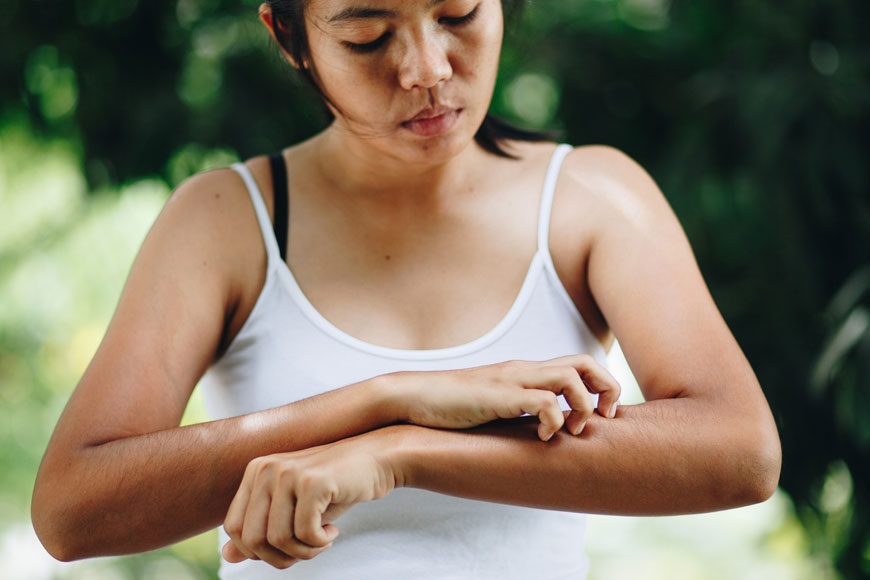Summer can be a time of heightened anxiety for people living with psoriasis.

All Credits: PA
Psoriasis affects around two in every 100 people and you can get it at any age in life, male or female.
The British Skin Foundation says that although psoriasis is a long-term condition, it can often come and go throughout your lifetime, which means people affected will usually experience flare-ups followed by periods where symptoms calm down.
Exactly why some people develop it and others don’t isn’t entirely clear. The condition is characterised by dry, raised, scaly patches of skin, which may be itchy and sometimes sore and painful.
These patches (called ‘plaques’) tend to occur because of an increased production of skin cells. Usually, skin cells are replaced every three to four weeks, but with psoriasis this process can happen between three to seven days.

How can I relieve psoriasis symptoms?
Currently, there’s no cure for psoriasis, but there are lots of treatments that may help to relieve your symptoms and manage flare-ups.
Treatments tend to fall into three categories: Topical creams and ointments that are applied to your skin, phototherapy, and oral and injected medications that work throughout the entire body.

It’s a good idea to consult with your doctor ahead of your summer holiday, as some treatments may work better for you than others – and you may need to use a combination.
Your doctor will explain when and how to treat your symptoms, and how to use any prescribed treatments properly and safely.
If symptoms are particularly severe and ongoing, a referral to a dermatologist, who can give more specialist advice, is a good idea.
Can sunlight help my psoriasis?

Will chlorine make it worse?
It’s tempting to take a dip for relief when your skin is feeling tight and itchy, but chlorine is a chemical that can make dry patches worse and possibly cause further skin irritation for some people.
That said, being submerged in warm water can often soften hard areas of skin, so the best way to avoid irritation from chlorine is to take a shower immediately after getting out of the pool. It also goes without saying that you should avoid getting in the pool if you have any particularly bad patches that are bleeding or oozing.




.png?itok=HBSyMDok)









































































.png)


























.png?itok=0fOAXkOm)

























.png?itok=EH_x0Pha)
